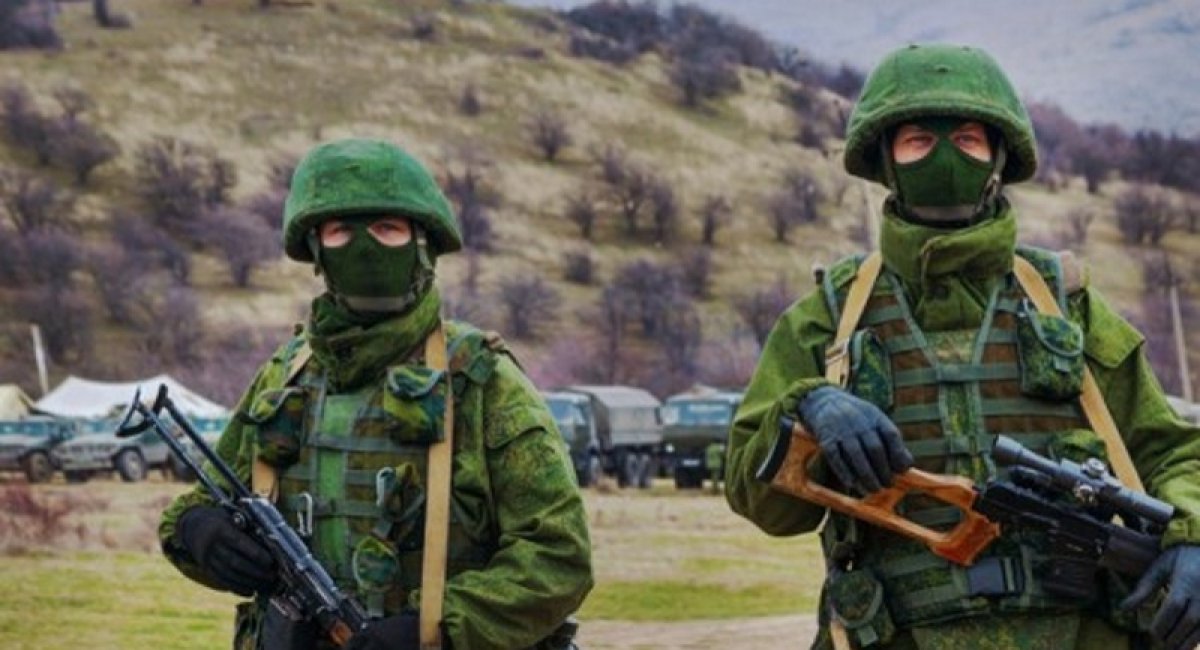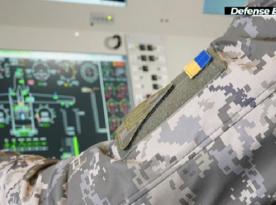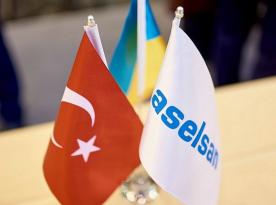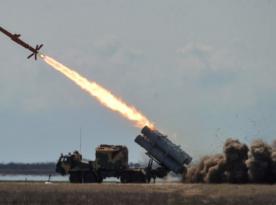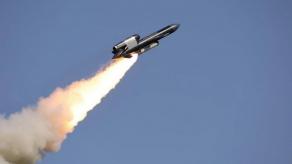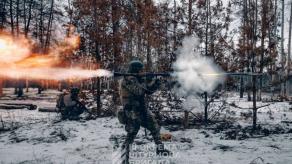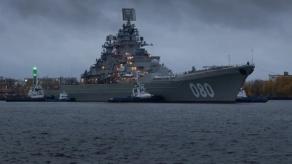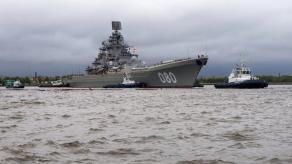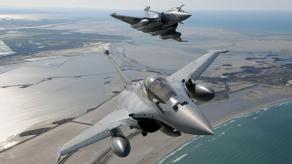The Ukrainian territory itself, is considered by the Kremlin as a geostrategic “buffer zone” between the Russian Federation and NATO, and is an integral part of Russia’s territorial defense. Russia manages an undeclared war in the east of Ukraine to block initiatives on Ukraine’s withdrawal from Russia’s influence and the formation of uncertainty among geopolitical opponents in the prospects for further development of the situation in Eastern Europe. Russia is currently demonstrating readiness for a full-scale war in order to excite the situation, and obtain benefits and modeling of future agreements with the Western countries (in particular, the United States and the leading powers of the EU) regarding the distribution of future spheres of geopolitical influence.
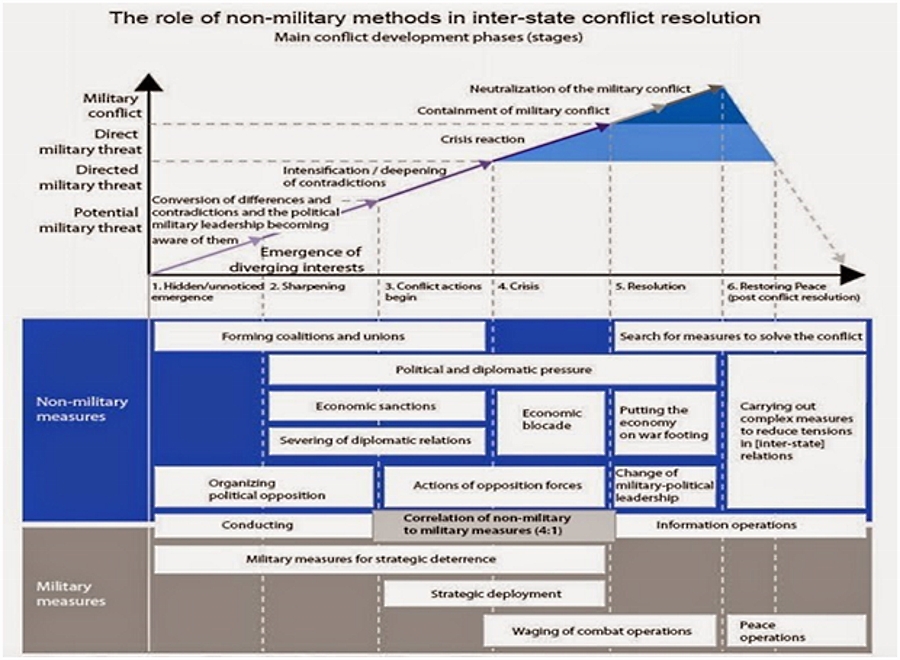
In the fifth year of the war, Ukraine has shown the world how to withstand a much larger and more powerful adversary. However, in order to win this war, it is necessary that Ukraine’s experience, paid for at a very high price (more than 10,000 dead and more than 2,000,000 internal displaced persons), should be studied and implemented. What needs to be done to ensure that suffering is not in vain? What lessons should be learned from this situation to avoid losses in the future? In which areas the first step should be made?
Read more: Ukraine has created new missile systems
Since 2014, Ukraine has made tremendous progress in each of these areas. Militarily, Ukraine has:
- increased the quantity of the Armed Forces of Ukraine almost twice (from 150,000 in the year 2014 to 255,000 in the year 2018);
- increased the military budget and spending on the security sector and defense as a whole. Ukrainian military budget in 2014 was 27 billion hryvnias – 1,78% of GDP and 101,4 billion hryvnias in 2019 – approximately 5% of GDP. The salary of servicemen was increased 2 times;
- made the renewal of the leadership of the Armed Forces. Further promotion for the next service position and study now only in the presence of combat experience in the area of Anti Terrorists Operation (ATO) /Joint Forces Operation (JFO);
- changed the ATO format itself to the JFO. It is allowed to improve the planning prosedures, C3 (command, control and communication) system of the operation in the east of Ukraine;
- created a new services of the Armed Forces based on the current combat experience – Airborne-Assault Troops (instead of Paratrooper Troops) and Special Operation Forces. Additionally, in order to inform commanders about civil environment in the area of operation the system of Civil-Military Cooperation (CIMIC) was established. CIMIC is working on strategical, operational and tactical levels.
As a result, according to the Global Firepower analytical report in 2018, Ukraine holds 29th position in the world ranking and 10th position among the most powerful armies in Europe.
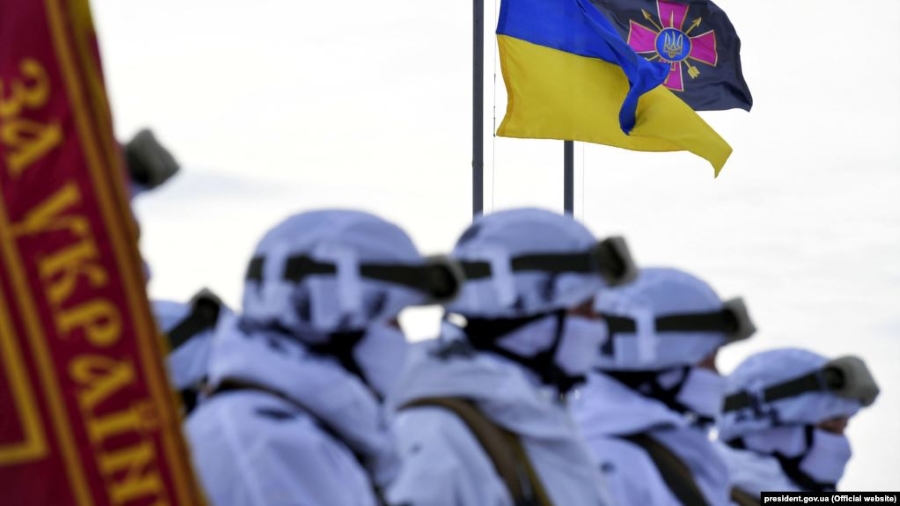
In the economic area, Ukraine also has produced good results in counteracting Ryssian hybrid aggression. While the Ukrainian armed forces restrain Russian military aggression in the Donbas, Ukraine is pursuing a series of countermeasures to reduce Russia’s share of capital in Ukraine, and in fact, to reduce Ukraine’s dependence on the Russian market and Russian energy resources. Ukrainian producers redirected their markets and succeeded in geographical diversification of export supplies.
At the same time, as a part of economic countermeasures, Ukraine continued the practice of filing lawsuits against Russia. Thus, according to the results of two arbitration proceedings in Stockholm, Gazprom (the Russian state gas corporation, the main Russian gas supplier-monopolist) has to pay $2.56 billion to Naftogaz (the Ukrainian state gas company).
Moreover, 18 Ukrainian organizations and one individual filed a lawsuit against the Russian Federation. The international court ordered that Russia must compensate the Ukrainian business for the loss of assets with interest payments, as well as the costs of legal services and court proceedings. The payments amounted to $159 million.
Even with military and economic countermeasures, combating Russian hybridity is impossible without rallying around humanitarian considerations. The main threats for Ukraine in the humanitarian area are: a threat to Ukrainian national identity (denial of Ukrainian identity to Russia), aggravation of contradictions in the field of entopolitics (language issue), manipulation of historical memory (falsification of history), and use of the Ukrainian Orthodox Church (Moscow Patriarchate) for social destabilization in Ukraine (church occupation of Ukraine). Russia wants to use the internal tensions and contradictions of society in Ukraine and complete the conquest and its occupation by the hands of local irredentists and traitors.
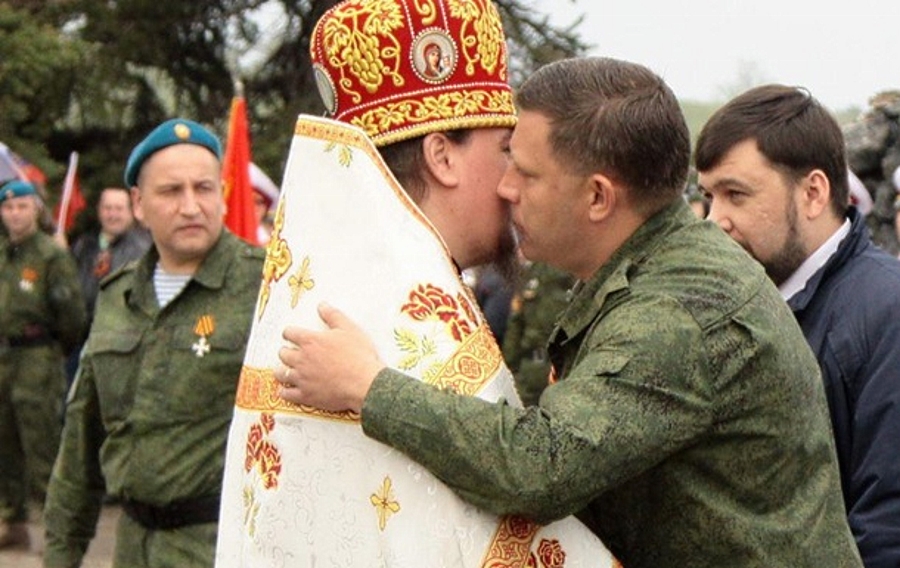
Currently, the Russian Church constitutes a serious threat to the national security of Ukraine due to destructive influences on the socio-political and, in particular, humanitarian spaces of Ukraine. The priests of the Ukrainian Orthodox Church (Moscow Patriarchate [UOC (MP)] take direct part in terrorist formations, provide temples and monasteries for hiding weapons and military equipment, and conduct intelligence on the deployment of units of the Armed Forces of Ukraine.
Why is this church issue is so important? Because the church is one of the main pillars of the idea of the “Russian World” which Putin declared for the first time in 2001. He mentioned: “The notion of the Russian World extends far from Russia’s geographical borders and even far from the borders of the Russian ethnicity.” Both times, in 2008 in Georgia and in 2014 in Ukraine, Russia used the Russian-speaking population as a cause and cover-up of military invasion. In order to be free from the Russian Church in Ukraine, President Petro Poroshenko initiated the creation of Ukrainian Orthodox Church, which will be completely independent from the Russian Orthodox Church. Thus, since December 15, 2018, (date of the creation of Ukrainian Orthodox Church), Russia loses another powerful lever of influence in Ukraine – religion.
Another key threat for Ukraine is located in the political area. In order for Russia to influence on foreign and domestic Ukrainian policy, Russia formed a legal political lobby in parliament and the executive, open promotion and subordination of the pro-Russian politicians and political parties at the local and regional levels in a time of nationwide elections. Russia is trying to destabilize the internal situation in Ukraine and using irredentists and proxies for these nefarious purposes. Without defeating Ukraine in a military confrontation, Russia staked on a political solution to the conflict. According to the Kremlin’s plans for power in Ukraine, during the next presidential elections (March 2019) and the parliamentary elections (October 2019), pro-Russian politicians must gain power with the aim of resolving the conflict through favorable considerations for Russia.
In addition, Russia is bringing into play individual politicians and informational and financial support of radical parties that profess intolerance to non-natives, advocate the idea of national exclusiveness and superiority towards other peoples or races, and idealize authoritarian methods of government.[18] Russia is also using bribery of political consultants and experts who can form the opinion of the leadership of leading political forces. Currently, Ukraine is trying to build a robust system of counteraction, but the situation is very uncertain due to a huge quantity of Russian agents who disseminate disinformation through traditional and new media.
Accordingly, the next area of battle against the Russian hybrid menace is information space – that is to say, propaganda. The information war that Russia has activated against Ukraine has set new challenges in the sphere of information security. Anti-Ukrainian propaganda, fake/staging news stories circulated by Russian media and social networks have had a significant impact not only on supporters of the eastern neighbor of the Donbas residents, but also on many representatives of the world community.
In order to counteract Russia in information warfare, Ukraine created “The doctrine of information security,” adopted by the National Security and Defense Council of Ukraine in December 2016 and signed by President Petro Poroshenko on February 25, 2017. This doctrine is intended to provide more rigorous control over the information disseminated by various media and Internet resources. As a result, the powers of state regulatory bodies will increase. Thus, two Russian social networks, “Odnoklassniki” (“Buddies”) and “VKontakte” (“In contact”), were closed in Ukraine in 2017.
Another area of confrontation with the aggressor remains cyberspace.
In 2017, within the framework of the Russian campaign to eliminate Ukrainian statehood, a number of cyber operations were conducted against Ukraine, including: BugDrop (June 2016 - March 2017); "WannaCry" (known as "WannaCwt", June 2017); NotPetya (also known as "Petya.A", "Petya", June 27-30, 2017).

The goals of these cyber-attacks were to obtain confidential information on the activities of critical infrastructure objects, state administration organs, international offices (including human rights organizations such as inter alia, in the temporarily occupied territories of Donbas and in the Crimea), political parties, and influential media. Furthermore, Russian cybertroops[21] impede the operation of large business companies, energy/transport infrastructure, and banking institutions to weaken the Ukrainian economy.
However, one of the most dangerous challenges is protecting the democratic electoral process (at all stages) from Russian cyber attacks. Russia has already begun a large-scale information campaign aimed at influencing the results of presidential and parliamentary elections in Ukraine. In this case, the cyber component of the information operation played a key role. The peculiarities of this information operation are likely to be the following: to manipulate social sentiment, to form behavior of potential voters and to provide the Kremlin with the necessary changes in the political course of Ukraine.
Ukraine is preparing for such developments in advance and developing preventive decisions and actions. For instance, on May 2018, a powerful cyberattack against Ukraine was prevented. According to the Security Service of Ukraine, this attack was being prepared for both cyber-intelligence activities and cyber-sabotage, particularly against objects of national critical infrastructure.
The diplomatic area is another very significant area in which Ukraine must counteract Russian hybrid aggression. To counteract Russian hybridity requires the consolidation of the efforts of partners and allies, ensuring the recognition of the status of an aggressor by the Russian Federation and the continuation of its sanction policy. Despite of all Moscow’s efforts to initiate a split in the allied countries that support Ukraine, Ukrainian diplomacy continues to implement a policy of countering the aggressor. The fact that such successes were achieved in the face of a rigid opposition from the Russian leadership, which increased its pressure on certain European powers, demonstrates the victory and professionalism of Ukrainian diplomats. Ukrainian diplomacy also makes an important contribution to improving Ukraine’s defense capability. On March 2018, the American Congress approved a package of aid worth $47 million, in which Ukraine received 37 anti-tank launchers “Javellin” and 210 missiles to them. On May 2018, the U.S. Congress also approved $250 million of military assistance to Ukraine for 2019, and Washington is ready to enlarge arms supplies to Ukraine to build up the air defense forces and navy.
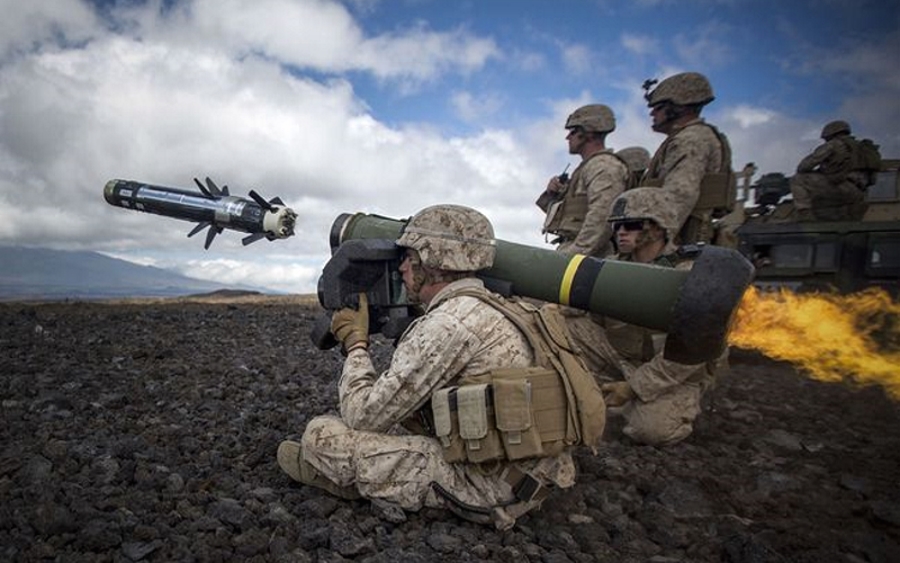
Currently, the Ukrainian diplomacy is aimed primarily at implementing the strategic goals of Ukrainian foreign policy: preventing the collapse of the Western anti-Putin coalition, keeping the world’s attention on events in Ukraine, recognizing the official level of aggressiveness of Russian politics, and, as a result, extending economic sanctions.
The last but not least area of counteraction to Russian hybridity is activity of special services. The special services of Russia were heavily involved in planning, organizing and implementing a set of measures to create the necessary conditions (political, economic, ideological, etc.) in Ukraine at the “pre-war” stage. Currently, Russia made its stake on non-military actions. According to the Kremlin’s plans, Russian special services focused on exaggerating the slightest mistakes of the Ukrainian authorities. They performed it through the pro-Moscow media and purchased politicians in Ukraine. Moscow plays mainly on emotions: “they deceived us again,” “we were sold/betrayed,” etc. The idea is that systematically, news story after news story create a picture of total “hopelessness” and “betrayal.” The people tired of deception and disappointment, “pumped over” with propaganda, will support another coup and will change the development vectors of the country.
The Ukrainian special services have learned to adequately respond to the Moscow assassins. For instance, on May 30, 2018, in Kyiv, Ukrainian special services prevented the murder of Russian journalist Arkadii Babchenko. As a result of a special operation of Ukrainian special services, the man who organized this murder was detained. Irrefutable evidence of the involvement of Russian special services in the organization of this murder has been obtained. In addition to Babchenko, the organizer of the assassination attempt on the Russian journalist planned to kill 30 different more men and women in the territory of Ukraine. Another case happened on November 15, 2018. The officers of the Prosecutor General’s Office of Ukraine arrested the citizen of Ukraine recruited by Russian special services to organize and commit acts of terrorism against public activists of the Kherson region.
Summary
This analysis concludes that the goal of Russia is the total destruction of the Ukrainian state as a subject of international law and a geopolitical actor. Russia seeks to realize this goal through hybrid warfare. This hybrid warfare has several components, but the most important and dangerous for Ukraine are: 1) armed aggression and 2) humanitarian aggression.
The purpose of armed aggression of Russia is the physical destruction of the most active and conscious parts of the Ukrainian society – pro-Western Ukrainian population, volunteers and the Ukrainian Armed Forces, the capture of the territory of Ukraine and the suppression of any resistance. The purpose of humanitarian aggression is the destruction of the national identity of the Ukrainian population and the destruction of its will to resist.
A country can be defeated as a result of armed aggression, but it will definitely be arise anew if its identity is preserved. First and foremost, national identity directly correlates to the will to fight against aggression. Three hundred Spartans, who preferred death to disgraceful humiliation, is one of the vivid examples of such identity. However, if a country loses its identity, it will never recover and never again become an independent state. If the humanitarian aggression is successful against any state, then the state simply disappears.
Consequently, Ukraine needs a comprehensive approach – not only strengthening the defense capacity of the country, but also providing an adequate humanitarian policy and robust civil-military relations, which will become formidable instruments against the destruction of Ukraine’s identity. In addition, it is necessary to repel and counteract Russia in other areas – economic, political, information, cyberspace, diplomatic – and actively engage the special services in this struggle. In confrontation with Russia, Ukraine can survive only when it conducts round-the-clock and purposeful work in all these areas.
Ukraine, at the cost of suffering victims, has gained a unique experience – Ukraine was able to defend itself by creating mechanisms for counteracting the most aggressive manifestations of the Kremlin hybridity. Western countries should not only helping Ukraine (because if Ukraine loses, then the West will lose), but also relying on the Ukrainian experience, develop its capabilities, forms and methods to counter the Russian hybridity because the world will have to deal with hybrid threats in the near future.
Viacheslav POPOV
Read more: Combat ‘TURTLE’ and its related siblings



